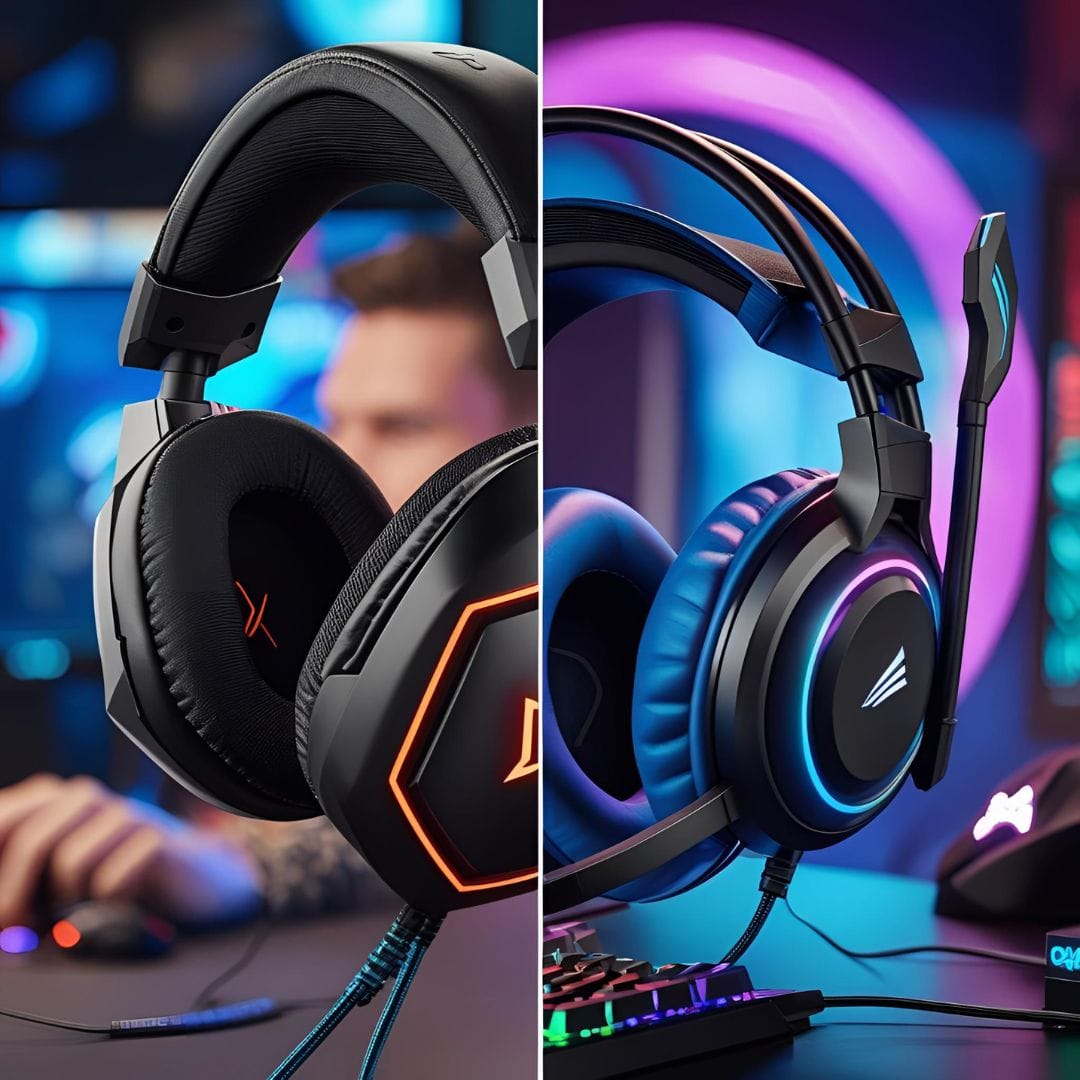
Compare Expensive vs Budget Gaming Headsets in 2025. Learn how premium models outperform budget headsets in durability, audio quality, mic clarity, and long-term value.
Intro:
Expensive vs Budget Gaming Headsets — which one truly lasts longer? Are pricey gaming headsets really worth the investment? Or is it all just branding and marketing hype? Many gamers wonder if paying double or triple the price means better performance, or if budget headsets can hold their own over time.
In this post, we break down the long-term differences between premium and affordable models — covering comfort, durability, sound quality, mic performance, and future-proofing. If you’re trying to decide where to invest your money, here’s what really happens as headsets age — and which kind offers better value in the long run.
1. Build Quality & Materials: Durability That Matters
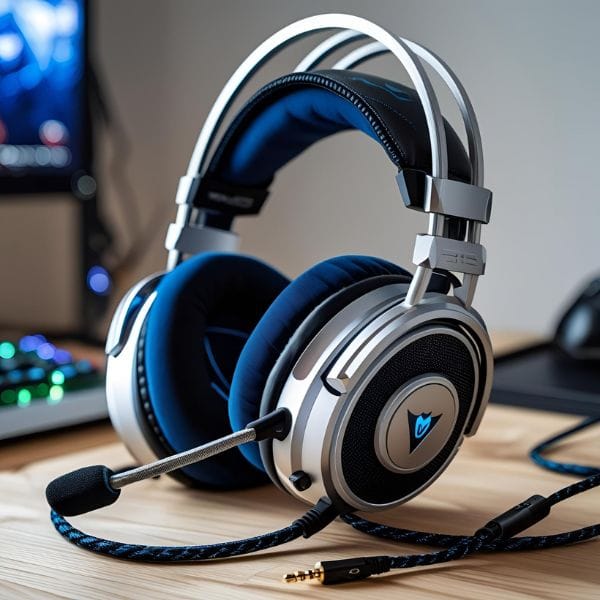
Expensive vs Budget Gaming Headsets show dramatic differences in construction. Premium gaming headsets tend to use higher-grade materials — think aluminum frames, memory foam earpads, and braided detachable cables. These elements are designed not just for comfort, but for endurance.
Budget headsets often use rigid plastic, synthetic foam, and fixed parts. While this makes them lighter and cheaper, it also means they’re more prone to breakage — especially in hinges and headbands.
Examples:
- SteelSeries Arctis Nova Pro uses a flexible metal band and magnetic ear cushions.
- A generic $30 headset may use plastic pivots that crack over time.
Verdict: Expensive headsets are built to last 2–5 years. Budget headsets may last 6–18 months, depending on use and care.
2. Sound Quality: Do Premium Headsets Stay Better?

Over time, cheaper headsets often lose audio balance due to driver fatigue, weaker magnets, or poor enclosure design. Expensive vs Budget Gaming Headsets show that premium models typically use custom-tuned drivers, firmware updates, and spatial audio technologies like Dolby Atmos or Tempest 3D Audio.
Premium audio advantages:
- Deeper bass with less distortion
- Clearer treble over time
- Retains clarity at higher volumes
- Software EQ customization
Budget audio drawbacks:
- Muffled highs after prolonged use
- Inconsistent audio positioning
- Static or interference from cheap cables
Verdict: Premium headsets not only sound better out of the box — they continue to sound better for much longer.
3. Comfort & Wearability: What Happens After 6 Months?
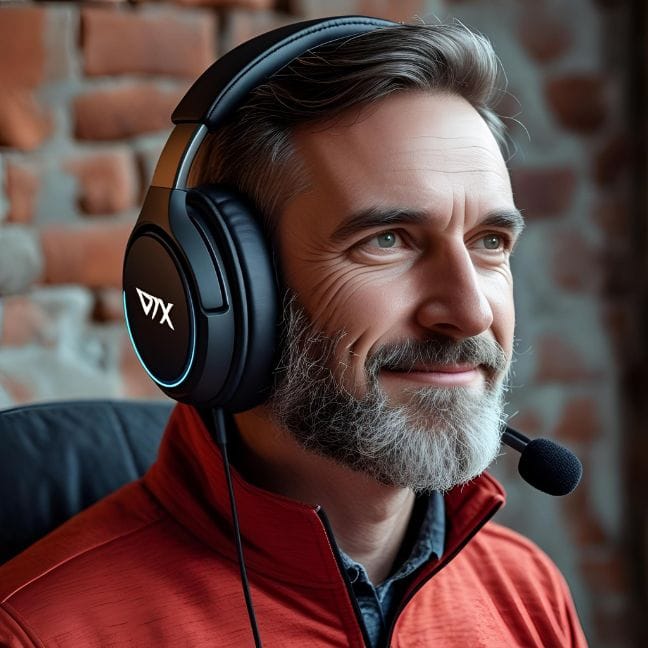
A comfortable headset is crucial for long sessions, but the difference between premium and budget becomes clear after just a few weeks of use.
Premium comfort features:
Memory foam that retains shape
Cloth or leatherette earpads that resist moisture
Balanced weight distribution
Budget limitations:
Foam flattens fast
Ear cups may become itchy or sweaty
Headband pressure can increase over time
Gamers who stream or play 2–4 hours daily often report head fatigue, sore ears, or hot spots with budget gear—something rarely seen in mid-to-high-end models.
Verdict: Premium headsets stay comfortable for longer sessions and more months.
4. Microphone Quality: Is Voice Chat Clearer?
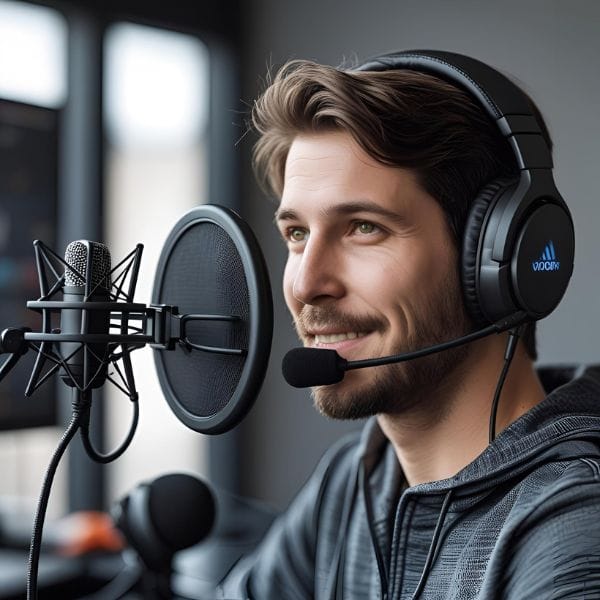
In budget models, mics are often fixed, low sensitivity, and lack any real noise filtering. After a while, internal wiring can degrade, leading to crackling or dead mic issues.
Premium headsets, on the other hand, may offer:
Removable boom mics
Noise-canceling DSP chips
Adjustable gain and sidetone
This matters for both casual chat and serious streamers or competitive players who rely on crystal-clear comms.
Verdict: For multiplayer or content creation, a premium mic makes a major difference—and remains reliable much longer.
5. Firmware, Software & Future-Proofing

One key area where budget models fall short is software. Most affordable headsets are “plug and play,” which sounds convenient—but also means:
No EQ customization
No firmware updates
No spatial audio toggles
Premium brands like Astro, SteelSeries, and Razer include robust companion software for PC or mobile. These tools allow:
Audio presets
Mic adjustments
App-based firmware updates
Profile syncing across devices
Verdict: Premium headsets age better because they evolve—budget ones become outdated quickly.
6. Longevity & True Value Over Time
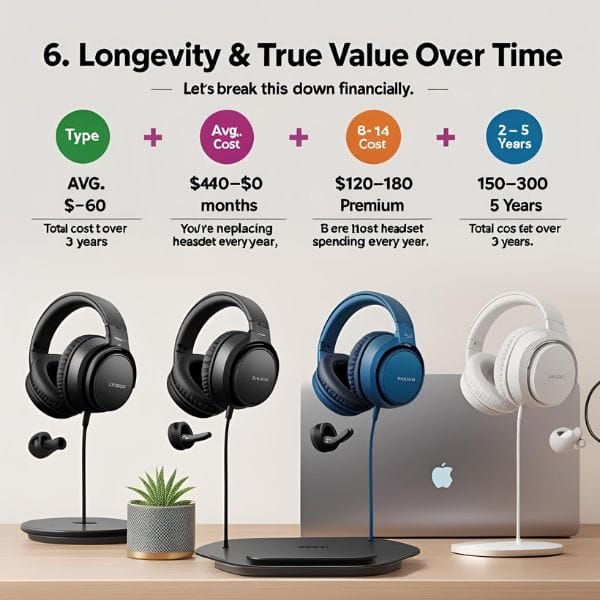
Let’s break this down financially.
| Type | Avg. Cost | Lifespan | Total Cost Over 3 Years |
|---|---|---|---|
| Budget | $40–$60 | 8–14 months | $120–$180 |
| Premium | $150–$300 | 2–5 years | $150–$300 (one-time buy) |
If you’re replacing a cheap headset every year, you’re likely spending more over time—not to mention enduring more frustration.
Verdict: Premium headsets often deliver better long-term value, especially for frequent gamers.
Final Thoughts: Should You Spend More on a Gaming Headset?
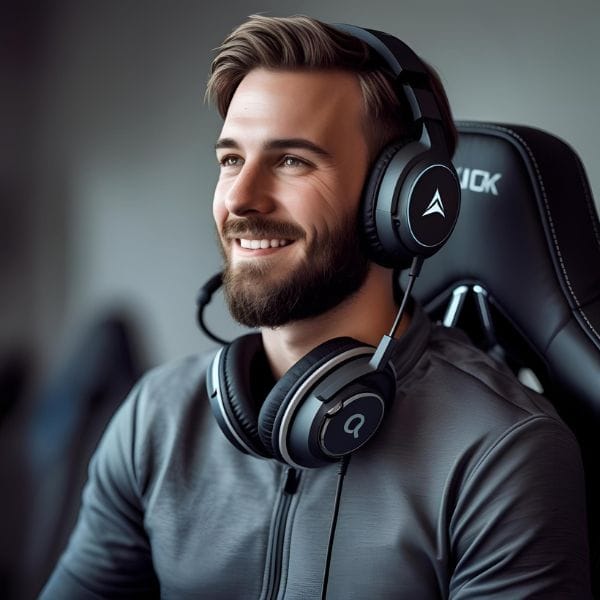
If you’re a casual player who only hops online occasionally, a budget headset might be all you need. But if you:
Game daily
Play competitively
Use your headset for work, calls, or streaming
Then spending more up front can save you money, time, and frustration later on.
You’ll get better sound, better comfort, better mic quality, and fewer replacements. It’s a win across the board.
Related Posts:
External Resource:
FAQ – Expensive vs Budget Gaming Headsets

Do expensive headsets sound better right away?
Yes. You’ll often notice more clarity, spatial awareness, and richer bass immediately.
Can I use a budget headset with Dolby Atmos or Tempest 3D?
Usually no—most budget models don’t support advanced spatial audio formats.
What lasts longer: expensive or budget headsets?
Premium headsets last 2–5 years. Budget ones may wear out in 6–18 months.
Are expensive headsets heavier?
Some are, but they’re also better balanced. Comfort is often superior even if the weight is slightly higher.
Can I customize my budget headset with software?
Rarely. Most budget headsets don’t support EQ, mic controls, or firmware updates.


Pingback: PS5 Headset On Xbox: Avoid Frustrating Compatibility Issues
Pingback: Transform Your Setup: Best Cross-Platform Gaming Accessories That Work (2025)
Pingback: Gaming Audio's Next Frontier: 5 Mind-Blowing Innovations Beyond Surround Sound